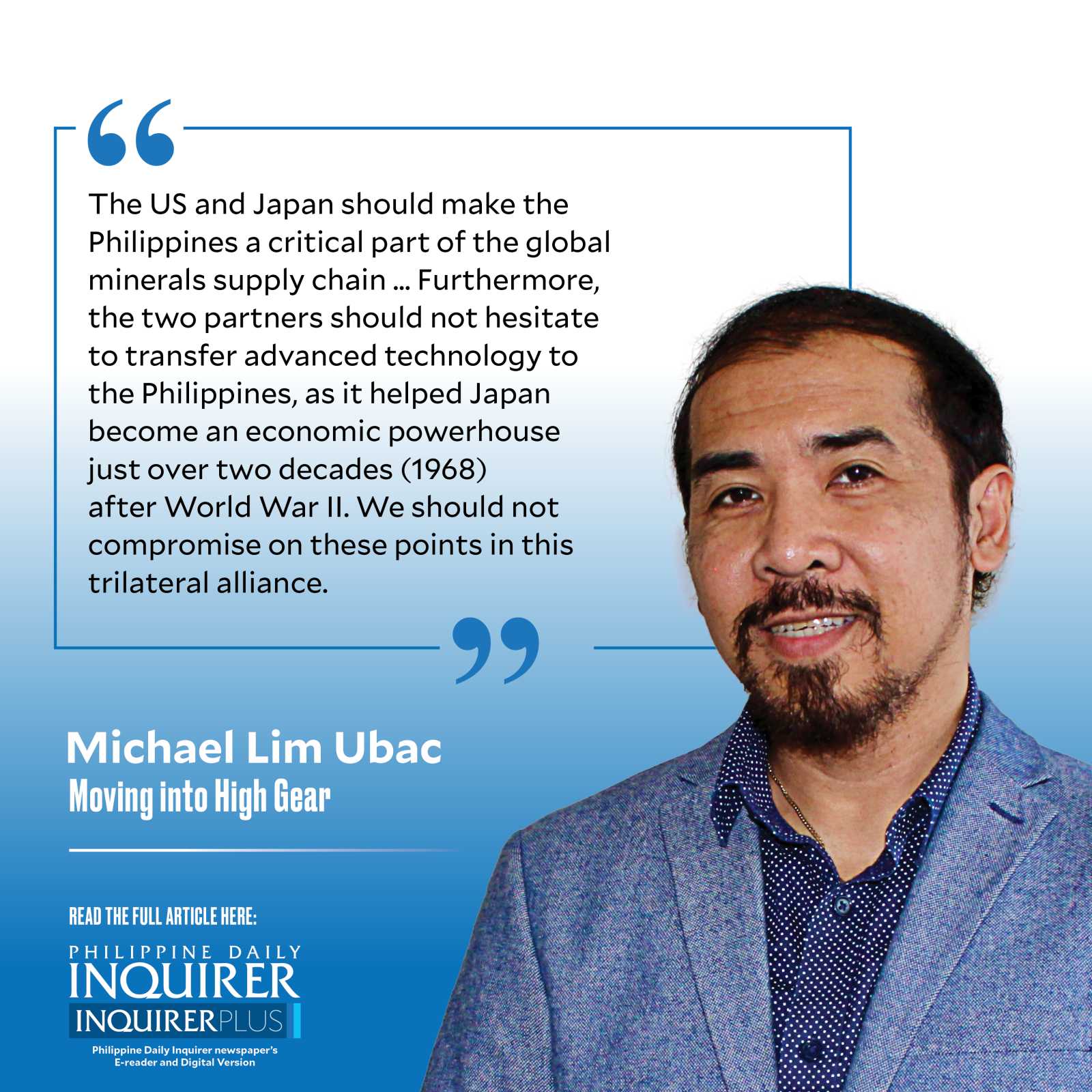PH-US-Japan triad: An alliance of ‘equals’?

For the first time since the end of the Cold War, the Philippines is the focal point of a new security arrangement in the Indo-Pacific. This is an upgraded alliance whose benefits go beyond an “ironclad” commitment to defend each other in case of an attack.
The first trilateral summit between United States President Joe Biden, Japanese Prime Minister Fumio Kishida, and President Marcos at the White House on April 11 marked the end of the siloing of bilateral relations between a superpower and its individual (but lesser) allies.
The historic trilateral alliance is a significant shift in the way the US pursues its international relations in the Indo-Pacific, a geographical area that encompasses at least 14 countries from the Indian to the Pacific Oceans. The White House called the trilateral ties “an overlapping latticework of mutually reinforcing partnerships in the Indo-Pacific.”
The formalization of trilateral ties between the Philippines, Japan, and the US comes on the heels of separate but similar arrangements that the US forged with other allies and security partners: with Japan and South Korea; and with Australia and the United Kingdom through the military partnership dubbed as “AUKUS.” These alliances were formed under the Biden administration.
Biden also raised to leader level the “Quad,” which stands for the four countries that also have a joint strategic security alliance—India, Japan, Australia, and the US. The presence of Australia in the joint naval exercises with treaty allies Japan, the Philippines, and the US last April 7 in the South China Sea (SCS) may hint at ever-evolving friendships among maritime democracies in the Indo-Pacific that could potentially draw more countries into a larger alliance.
This also makes other competing powers in Asia and Europe aware of the US-led geopolitical changes that aim to maintain international order through a multilateral approach. But whether the US elections in November will fundamentally change the dynamics of the evolving alliance is still a big question mark.
Historical ties of friendship. At the trilateral summit, Biden said that the US, Philippines, and Japan “are bound together by historical ties of friendship.” He described Mr. Marcos and Kishida “as equal partners and trusted friends, united by the vision we share of a free and open Indo-Pacific and international order based on international law—a vision we pledge to advance together for decades to come.”
These words are standard fare for leaders engaged in diplomacy. It would be naïve to believe that the Philippines is an equal partner to either the US or Japan, which are two of the three largest economies in the world and the most advanced technologically.
But Filipinos being “trusted friends” has been proven historically. When the Imperial Japanese forces attacked Pearl Harbor in 1941 and then went on to invade the Philippines, Filipinos rallied for the cause of America, embracing their colonial master with arms wide open. They joined forces with American troops to defend Bataan and later turned into guerrillas, giving intelligence to Gen. Douglas MacArthur, who had escaped to Australia.
All of these nations have become close friends. But both historical continuity and discontinuity should be noted because the trilateral ties involve former colonial masters and their colonies. Why is this significant?
Japan is now the linchpin of American interests in the region. The trilateral alliances are shifting the balance of power in the Indo-Pacific, a shift that has huge implications for how international relations will be pursued from here on.
The Philippines should take advantage of this rare opportunity to leverage its enhanced alliance with America and its strategic position in the volatile SCS and the Western Pacific region by seeking concessions that will benefit it in the medium- and long-term. An independent foreign policy is not synonymous with neutrality. What is important is that the trio benefits equally from pursuing their common interests together due to their shared past.
The US has pledged $1 billion in private sector investments that will “help promote the Philippines’ innovation economy, clean energy transition, and supply chain resilience.” Japan’s official development assistance and private sector investments in the Philippines also exceeded 600 billion Japanese yen last year.
The US and Japan should make the Philippines a critical part of the global minerals supply chain. Our country is the world’s second-largest exporter of nickel, which is used to produce batteries for electric vehicles. Furthermore, the two partners should not hesitate to transfer advanced technology to the Philippines, as it helped Japan become an economic powerhouse just over two decades (1968) after World War II. We should not compromise on these points in this trilateral alliance.
—————-
For comments: lim.mike04@gmail.com; @umichaell




















